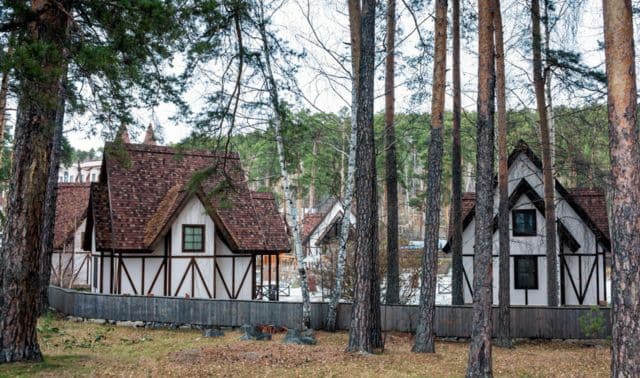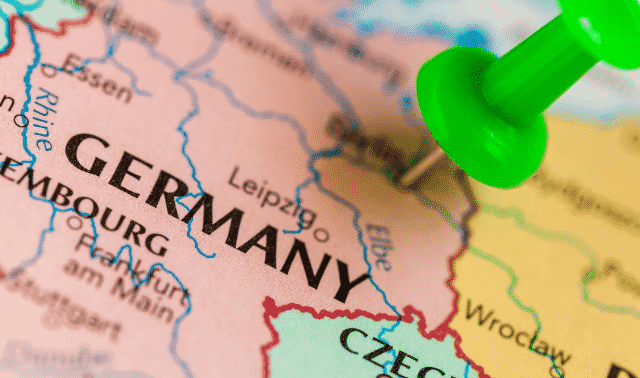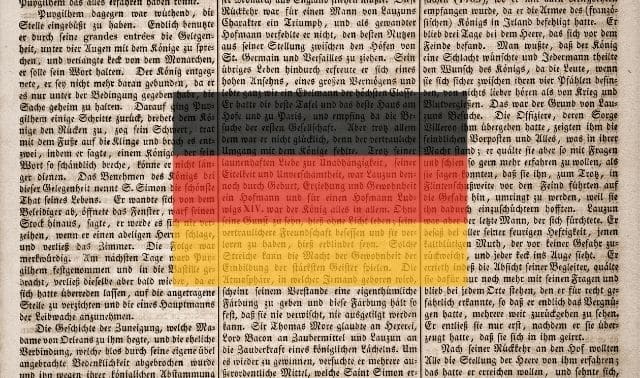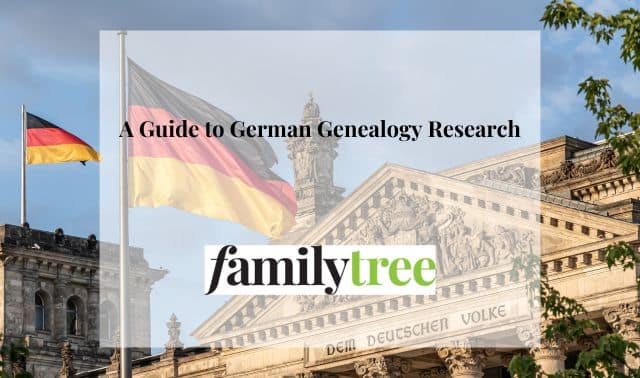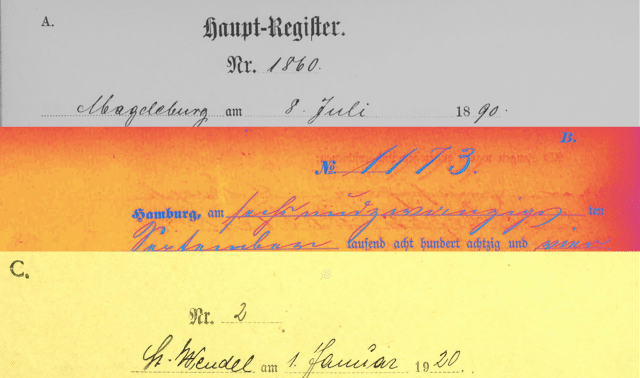Sign up for the Family Tree Newsletter! Plus, you’ll receive our 10 Essential Genealogy Research Forms PDF as a special thank you.
Get Your Free Genealogy Forms
"*" indicates required fields
Discovering the name of a Germanic village or town for a specific ancestor or family line is a rewarding achievement! That said, as most German family researchers know, the process of finding that village can sometimes be challenging. Territorial and place name changes (especially within certain regions) are common obstacles faced by many genealogists.
To this end, online gazetteers, databases, directories and other resources are indispensable in German genealogy. They are like a genealogical compass to guide the researcher in the right direction (for learning more about the historical and jurisdictional details of a specific location in question before looking for records). In this article, we will explore some of these resources closely so that you can better pinpoint the place that your ancestors may have called home.
Glance at the Gazetteers
Gazetteers are a type of geography direct are excellent places to begin when you’re looking for your ancestral villages.
When using a German/Germanic or alternative-language gazetteer, database, directory or resource, consider the following points:
- Have a specific location in mind
- Choose a gazetteer or related tool or resource that fits your research needs
- Choose the correct spelling of a location when using an online gazetteer
- Try variations in spelling if you are not sure
- Try a * wildcard search (if available) for overcoming spelling challenges
- Don’t be surprised to possibly find several locations with the same place name
- Try to narrow down your search in the event there are multiple results
- Apply the jurisdictional details learned about the location in the pursuit of records
Meyers Gazetteer
One of the most common online gazetteers for locating and learning more about specific locations of interest in the historical German Empire (1871-1918) is Meyers Gazetteer. Meyers Gazetteer, which is helpful for both German and Prussian genealogy, is based on the 1912 Meyers Orts-und Verkehrs-Lexikon des Deutschen Reichs. For more information about Meyers Gazetteer and how to use it, be sure to check out our own guide.
Navigate Kartenmeister
Kartenmeister is a helpful conversion database between historical German and Polish place names (particularly for locations in present-day Poland east of the Oder and Neisse rivers, which were, at one time, a part of the German Empire). The over 100,000 locations found in the Kartenmeister database are based on the locations in the eastern provinces as they existed in 1918. You can find more strategies for using Kartenmeister here.
Give Wikipedia a Chance
You may been warned against relying on Wikipedia too heavily, as it may be frequently updated by various users. While you shouldn’t use it as your sole source, Wikipedia can be a handy research tool alongside gazetteers and online archives.
You can search for a specific German-language (or alternative language) place name. In many cases, the result for a given location will provide its present name (if it is different from its historical name) and the current jurisdictional details (e.g., the state or province under which the target location is currently aggregated). If you would like to learn more information about a particular target location, sometimes it is necessary to search using Wikipedia in the German, Polish or another language.
Explore Compgen
The Compgen website (in the German language; use a translate extension tool) is a genealogical gem for both German and Prussian genealogy. There are two indispensable sections within Compgen as it pertains to learning more about a specific location of interest. The first is the GOV tool, which is a historical directory of places. Enter in the location of interest in the Ortsname (place name) field and see what result(s) might come up.
After clicking on an available entry of interest, it will give a specific URL identifier, description (e.g., village, church, district, etc.), a diagram of a particular location’s jurisdictional affiliation over time and other details.
The resources in Genwiki often offers background details about a given location, as well as the availability of records and more. Enter in the location of interest in the “Genwiki durchsuchen” field (in the upper right-hand corner) and see what result(s) might come up.

Experiment with Translation Tools
Some helpful online genealogical websites may be in German or another language, which can be confusing if you do not understand the language. The good news is that foreign-language website can still be excellent resources thanks to modern translation tools.If the website of interest does not have a feature to toggle conveniently between the foreign language and English, you can try one of two things:
More often than not, you can use the “Translate to English” feature on a Google Chrome browser by right-clicking on your computer mouse. You can also copy and paste the content of interest into a translation tool like the deepl.com website.
Either way, in many cases, the gist of the information produced via an automated translation into English can be presented and correspondingly evaluated. Please be advised that if you are searching through a browsable image, it will not be possible to make an automated translation of the text into English.
Region-Specific Resources Outside Germany
Perhaps you know that your German ancestors settled someplace outside of Germany, and can pinpoint the general region; you just struggle to place their exact place of origin on a map. Fortunately, there are many resources that can help you research such ancestors as well.
The Polish State Archives
The Polish State Archives (in the Polish language) is a genealogical “must” for German
genealogy researchers seeking to learn more about the availability of German-language records about a specific location in present-day Poland. On the archives page enter in either the German or Polish place name, choose the filters of interest and see what results might come up.

JewishGen
JewishGen is a helpful site whether or not you have Jewish ancestry. The town finder database offers similar jurisdictional information found on other sites. Enter the location in the field and see what might come up. For this site, you need to create a user name and password. Follow the directions carefully.
GenTeam
The GenTeam (Die genealogische Datenbank) is a genealogical gem for those whose Germanic ancestors came from the historical Austro-Hungarian Empire. Their gazetteer index is indispensable for converting locations between historical Austro-Hungarian place names and modern place names and vice versa. Enter what you know (either for the historical or present place name) and see what might come up. For this site, you need to create a user name and password. Off to the left, choose gazetteers and then the search field will appear.

Germans From Russia
The SGGEE (Society for German Genealogy in Eastern Europe) website offers many invaluable resources. Among the resources available is a directory of German place name locations for “Germans from Russia” inhabitants in historical Volhynia. The place name locations are located on the left-hand side in alphabetical order. The modern Ukrainian locations are located on the right-hand side.
Historisches Lexicon der Schweiz HLS (Switzerland)
The Historisches Lexicon der Schweiz HLS (in the German language) has a lot of resources. This website is focused on Germanic place names in Switzerland. In the search field of this Swiss database, enter the Germanic place name in the search field and see what might come up.
Communes d’Alsace-Lorraine Directory
The Communes d’Alsace-Lorraine directory is a comprehensive listing of all of the communes or towns which were under German control during the period of the German Empire (1871-1918). In the left-hand column is the German place name location, and in the right-hand column is the present-day French location. A more detailed breakdown of the historical and jurisdictional German place names in Alsace-Lorraine (for the period of the German Empire) may be found on Meyers Gazetteer.
Prussian Resources
The 1905 Gemeindelexicon für das Königreich Preußen (in the German language) is available on FamilySearch (as well as on Ancestry.com). The version as presented on FamilySearch is separated into several digital volumes according to the former Prussian provinces. Click on the digital volume of interest and select “View Inside.” You can either browse through each image, or, more conveniently, you can enter in a location in the search field. From there, all instances of a particular location, if applicable, will appear highlighted.
The 1821 Wörterbuch des Preussischen Staats (in the German language) is an indispensable directory if the time frame for searching for a Prussian location falls before the period of the German Empire (1871-1918). It is presented digitally in five volumes, which are listed and linked to below.
- Wörterbuch des Preussischen Staats (A-F)
- Wörterbuch des Preussischen Staats (G-Ko)
- Wörterbuch des Preussischen Staats (Kr-O)
- Wörterbuch des Preussischen Staats (P-S)
- Wörterbuch des Preussischen Staats (T-Z)
If you decide to use this excellent resource, be sure that you are searching in the correct volume. Also, be prepared to scroll through a given directory until you found the entry of interest.
Other Regional German Gazetteers
There are several other online regional German gazetteers, databases, directories and resources, which may be found on the FamilySearch website.
At times, German family researchers may feel like they’re facing an uphill battle, often due to the frequent past territorial and place name changes in certain regions of the Germanic world. Taking advantage of the aforementioned gazetteers, databases, directories and resources will better equip German family researchers to find the records they seek.
Related Reads
Last updated: July 2023

